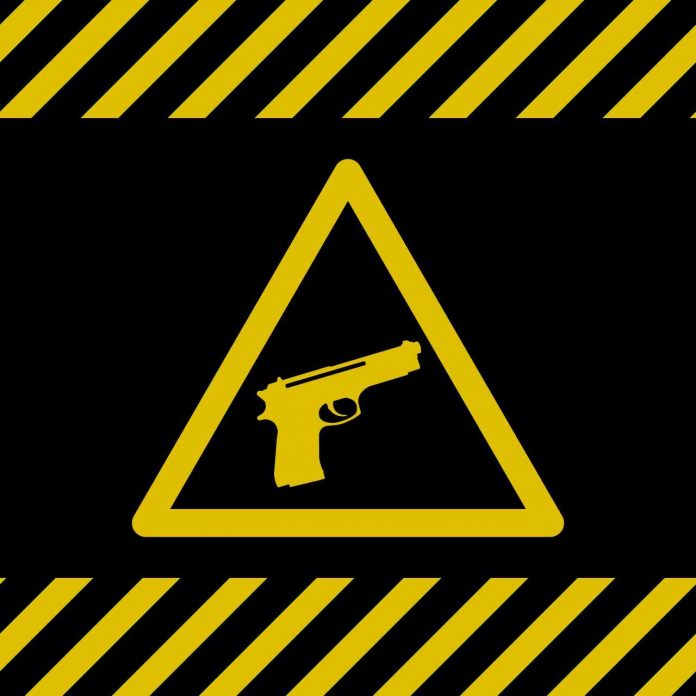Analysis | By Carol Davis
August 03, 2022
Course trains healthcare providers on identifying at-risk patients and how to intervene based on that risk.
The University of California, Davis is offering a free online continuing education course to help clinicians and other healthcare providers prevent firearm injury.
Training is provided by the BulletPoints Project at UC Davis, a program that teaches clinicians how to discuss the risks of firearm access with their patients and to intervene when someone is at increased risk.
The course explains how to have conversations with patients who have access to firearms and may be at risk of interpersonal violence, unintentional injury, or suicide, or unintentional injury, according to UC Davis. It also teaches clinicians how to intervene based on the type and level of risk of firearm violence.
The University of California, Davis is offering a free online continuing education course to help clinicians and other healthcare providers prevent firearm injury.
Training is provided by the BulletPoints Project at UC Davis, a program that teaches clinicians how to discuss the risks of firearm access with their patients and to intervene when someone is at increased risk.
The course explains how to have conversations with patients who have access to firearms and may be at risk of interpersonal violence, unintentional injury, or suicide, or unintentional injury, according to UC Davis. It also teaches clinicians how to intervene based on the type and level of risk of firearm violence.
“Clinicians play an important role in shaping public perceptions about safety and injury prevention,” said Amy Barnhorst, director of the BulletPoints Project, and vice chair for clinical services at the UC Davis Department of Psychiatry.
“The same way a healthcare provider might ask a patient about smoking cigarettes, or a pediatrician might ask about car seats, they can also talk to their patients about firearms in a nonpartisan, nonjudgmental way,” Barnhorst said.
The online course, Preventing Firearm Injury: What Clinicians Can Do, takes about an hour and features scenarios where a patient may be at risk of firearm violence, including suicide, intimate partner violence, mass shooting, and unintentional shooting.
The course walks clinicians through each scenario and provides intervention resource options, such as safe gun storage, temporary transfer of firearms, civil protective orders—also known as “red flag laws” or gun violence restraining orders—and mental health holds, known as 5150.
Clinicians also learn how to talk about the risks and interventions in culturally and politically neutral ways, according to UC Davis.
In 2020, the most recent year for which complete data is available, 45,222 people died from gun-related injuries in the U.S., according to the Pew Research Center. That same year, 79% of all homicides and 53% of all suicides involved firearms.
“The solution to our epidemic of gun violence is multifaceted and complex, and will take changes in policy, education, healthcare, school, and media,” Barnhorst said. “Educating healthcare providers is an important piece of the puzzle.”
Healthcare providers who complete the course can receive one hour of Continuing Medical Education (CME) through the California Medical Association or Continuing Education (CE) credits through the American Psychological Association.
Carol Davis is the Nursing Editor at HealthLeaders, an HCPro brand.
Carol Davis is the Nursing Editor at HealthLeaders, an HCPro brand.
The UC Davis program teaches clinicians how to discuss the risks of firearm access in a neutral way with patients.
The training walks clinicians through different scenarios and provides intervention resource options.
45,222 people died from gun-related injuries in the U.S. during 2020, the Pew Research Center says.
View the discussion thread.
The BA.5 subvariant can slip past the body’s defenses easier than any of its predecessors.
Most people have been infected with the virus, epidemiologists say, even if some don’t realize it.
Delaying vaccines is risky. Many pediatricians say a more gradual approach to vaccinations is better than no vaccinations, but they offer hard advice to parents considering it. …
Expenses are still weighing heavily on hospitals, health systems, and physician’s practices as the cost of care continues to rise. …
Merritt Hawkins, which is the largest physician search firm in the country, shows strong starting salaries and rising demand for physicians in latest annual report. …






